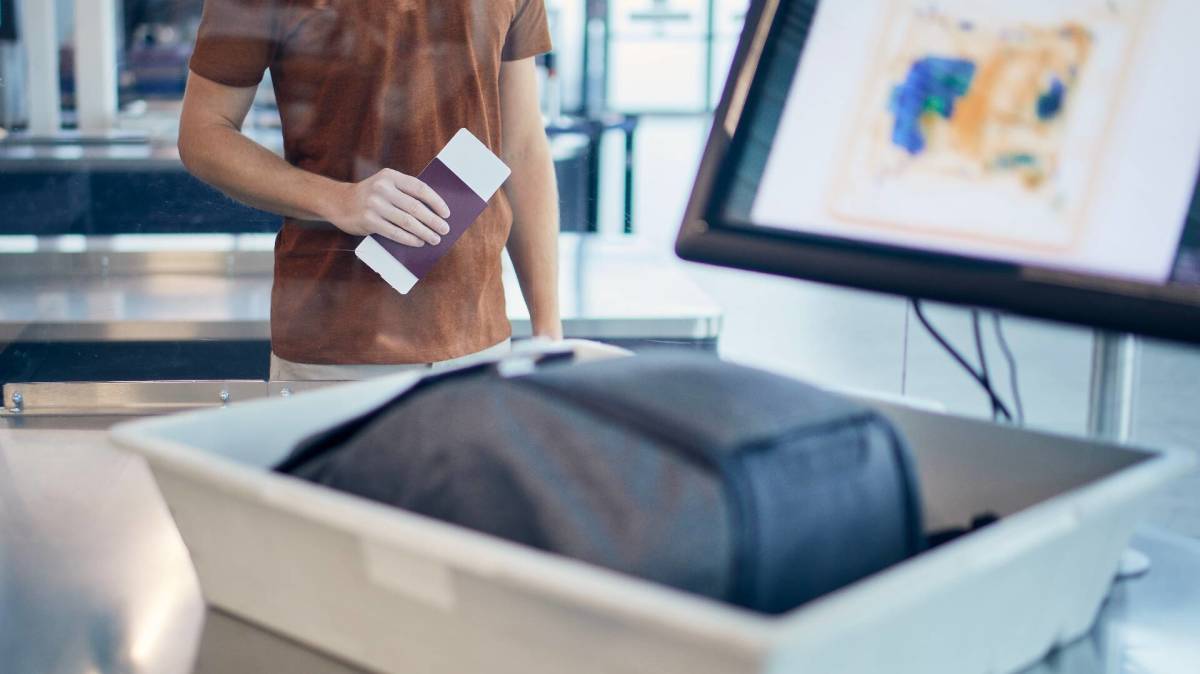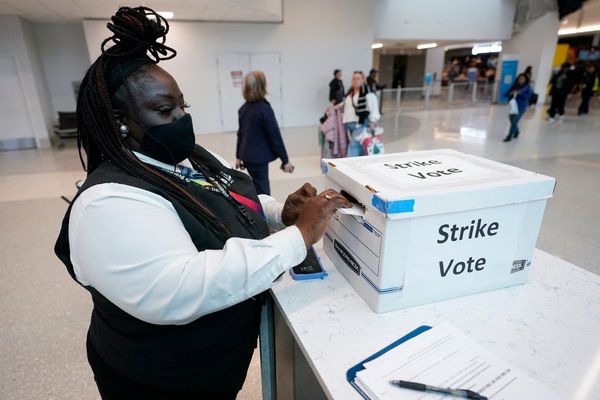
Airport customs officers, Transportation Security Administration (TSA) workers and other airport staff working with passenger baggage often have an unenviable job.
Before 2023 is over, the TSA is on track to confiscate a record number of guns from passengers who tried to bring them aboard their flights while workers at airports across the country have also discovered everything from drugs sewn into the inside of a hair scrunchy at Boise Airport in Idaho to a firearm stuffed into a raw chicken in Florida.
Related: These are some of the most dangerous items TSA confiscated at airports
On Oct. 18, U.S. Customs and Border Protection (CBP) announced that officers from its agriculture branch discovered 15 pounds of internal goat organs in the baggage of two travelers coming back into the U.S. at Chicago O'Hare International Airport on Oct. 10.

Shutterstock
'One pound of unknown meat, two pounds of garden eggs and 15 pounds of raw goat...'
"Two passengers arriving from the Democratic Republic of Congo were referred to agriculture secondary for inspection," the government agency said in a release. "CBPAS [the agriculture specialist branch of the CBP] inspected their baggage and found one pound of unknown meat, two pounds of garden eggs, and 15 pounds of raw goat viscera including the trachea, heart, lungs, liver, kidneys, and entire digestive system."
More Travel:
- A new travel term is taking over the internet (and reaching airlines and hotels)
- The 10 best airline stocks to buy now
- Airlines see a new kind of traveler at the front of the plane
Without elaborating on what had initially flagged the passengers and pushed customs to bring them in for secondary inspections, CBP said that it "seized and destroyed" the items that are quite obviously "outside of the normal items" they usually find in passenger baggage.
In the press release, it attached an image of the cut-up goats being held by a CBP officer in plastic gloves.
'Dangerous ecological and economical results' (and some of the other items airport workers fight against)
Earlier this October, CBPAS at Minneapolis-St. Paul International Airport seized a box full of giraffe feces from a traveler who was coming back from Kenya. While the pieces of an eviscerated goat were part of an attempt to sneak them in, the latter traveler had included the giraffe feces in her customs declaration as a souvenir from her trip that she was planning to use to "make a necklace" at her home in Iowa.
Customs officers seized the item anyway as it is a risk for introducing new pathogens to the U.S. Any type of raw meat and other animal products, in particular, are subject to the strict declaration and import regulations.
As a first offense, failing to declare prohibited agricultural items when entering the U.S. can earn one a fine of $1,000. This, however, applies only to small quantities brought in clearly for personal rather than commercial use. Those bringing in prohibited and undeclared items with an intent to sell them in the U.S. could be subject to tens of thousands of dollars in fines.
"There are real dangers these items can have if they are introduced in the U.S. economy," LaFonda D. Sutton-Burke, a CBP director who heads field operations at the Chicago field office, said in a press statement. "All passengers, whether entering or returning to the U.S., must be truthful and declare all items they are bringing. If one prohibited item enters the U.S. it could have dangerous ecological or economical results."







